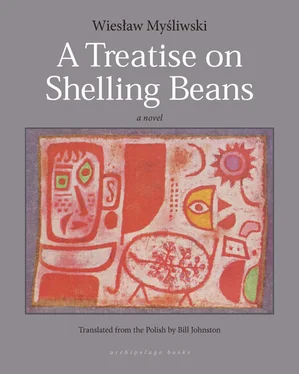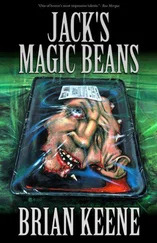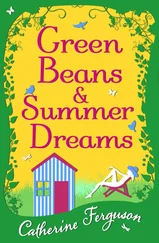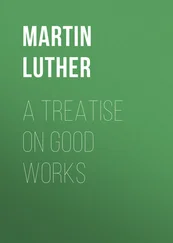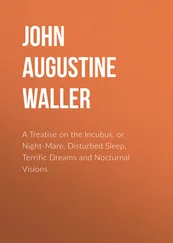I couldn’t say how many of them were standing around the pile. I wasn’t counting. Besides, you know how it is in dreams. Dreams don’t like numbers. Most of the women were elegantly dressed in black overcoats, black furs, black hats and shawls and gloves. And the black of each woman’s outfit was different from that of any of the others.
One of them had a black veil wound around her hat. Another wore a huge hat decorated with black roses — I think she was the one who had turned to me with her finger to her lips to stop me from speaking. I just hadn’t noticed the roses at the time. Another had a tiny little hat, but with a black pearl the size of a poppy head pinned to the front. I know there are no pearls like that, but in dreams there are, evidently. One had no hat, only a black veil over her head, dark glasses in gilt frames, and a black fur that glistened with droplets of mist. Yet another wore a hat with a veil so thick that nothing of her face could be seen. That woman’s sorrow seemed the most painful of all to me.
Among them were some country women. Muffled in shawls, in sleeveless jackets, wearing thin worn overcoats and crooked shoes, they hunched over, whether from sadness or from the drudgery of life. It must have been colder than it seemed to me, because they were blowing on their stiff blue hands. It occurred to me that perhaps the women in the elegant outfits were their daughters, daughters-in-law, cousins, who had come back from where they lived out in the world for the baking of potatoes. What could fine ladies like that be wanting for, if not the taste of potatoes baked in a bonfire.
“Have the potatoes been put into the bonfires yet?” I asked in a half-whisper.
“What potatoes?” asked the woman with the pearl the size of a poppy head, indignant at my question.
“Then what is it?”
“They’re dying,” said one of the country women in a voice filled with grief, as she blew on her hands.
“Who? Where?” I didn’t understand.
“The old farmers here, in these piles, they’re dying,” the women in the hat with the black roses said softly in my ear.
“Lord in heaven,” sighed one of the country women. Tears prevented her from saying any more.
“What do you mean, they’re dying?” It was still a mystery to me.
The one in the dark glasses chided me:
“Please stop talking. Show some respect.”
All the same I leaned over the pile of stalks, thinking I might recognize someone from our village. But there was only the narrowest of gaps, no bigger than a final sigh, and I couldn’t see a thing. I was about to widen the crack a little, but I heard someone murmur above me:
“Please don’t do that.”
I looked to see who had spoken, and I realized I didn’t know a single one of the women, either the fine ladies or the country women. Well, the one in the veil I might have noticed in passing at some point. But how could I see through her veil to check. The veil was dark as night, plus it was densely patterned with knots, they looked like little flies. I thought to myself that if I kept my eyes on her, at some moment she might need to wipe her tears, then she’d have to lift the veil. All at once a voice reached me from under the veil:
“Please don’t look at me like that. Especially because this isn’t me, despite what you think.”
“Ah, the priest’s here at last,” said one of the country women.
I did in fact see a priest. He had risen from his knees at a nearby pile and was headed toward us. He wore a surplice, had a stole around his neck, and carried a Bible. I was about to shout:
“Hey, Priest! Remember me?”
I knew him right away. But when he came close, it turned out that it wasn’t the welder from the building site, but a photographer. Without even asking, right away he took our picture. I’m standing with the group of women around a pile of dry potato stalks, in the brown felt hat. Can you imagine, I had so many hats in my life, but in the picture I’m wearing the brown felt one.
He clicked the shutter and took the picture out of the camera on the spot. It was in color, of course. My hat is brown, the meadow is green, the pile of stalks we’re standing around is grayish, and the black of each woman’s outfit is different. I believe he said which magazine he was from, but I don’t remember. He said he’d just learned that here, on the meadows, in the piles of stalks old farmers were dying, and he’d come.
“The issue’s going to sell like hotcakes,” he said, crowing with anticipation. All he had to do was get into the middle of the pile.
He fixed a long lens on his camera. He knelt down by the pile and inserted the lens into the gap the size of a final sigh. He clicked and clicked, all excited, exclaiming: Excellent, fantastic, even better. Except that when he was done, it was like someone began to pull him into the pile. He struggled and struggled, calling out, Help me, someone, till in the end he had to let go of his camera. And that’s how he lost possession of it.
You know, often when I look at that photograph, I’m tempted to take a peek inside the pile and see who’s dying in there. One day I will. I’ll have to. The only thing holding me back are the women standing nearby, even though I don’t know any of them. Especially the one in the hat with the black roses. I don’t suppose you know what black roses mean? Maybe the meaning of the whole dream could be made clear? I didn’t mention that when she stopped my hand as I was about to take the matches from my pocket, and she looked at me with reproach, one of the roses came loose from her hat and fell at my feet. I was about to bend down and pick it up, but my hat warned me that if I leaned over it would fall off too.
Black roses must mean something, you don’t find roses like that in gardens. One time when I was abroad I went to a rose show. Let me tell you, I was dazzled by all the shapes and colors. There must have been every kind of rose in the world, but there weren’t any black ones.
Do you believe in dreams? I didn’t until I had that one. I never thought twice about them. Whereas now, when I sometimes look at the photograph, I have the impression that I’ve simply dreamed myself from that dream into this world, and I’m here, I have to live here. I wonder if you’ll recognize me. I’m a little younger, but not much. Maybe you’ll recognize some of the women too. You may turn out to know one or another of them well.
What do you say, shall we have some tea? Or maybe you prefer coffee. Do you like green tea or regular? Me, I only drink green tea. Do you take sugar? Hang on, the sugar bowl should be around here somewhere. I don’t use sugar myself. I only drink unsweetened green tea. I rarely have sugar at all. Ah, here it is. I’ll put this stool between us if you’ve no objection, we can put our drinks on it. Yes, the sugar bowl is silver. I bought it in the same shop where I got the candlesticks. That was the time I was best off, it was my golden period. I was playing in a five-star hotel. We wore white tuxedos with green lapels, I remember it clearly. Well, not every evening. We had different outfits. And we’d play different instruments according to the evening and the clientele. Sometimes we’d change outfits in the same evening, depending on what we were playing. But the sax was always there, at most I’d change from an alto to a tenor or a soprano.
Here’s the tea. We can drink it in these teacups. You like them? I’m glad. They were a birthday present from the band. Only two are left from the set. It’s like they knew that one day you’d come and we’d drink tea in them. I never use them when I’m alone. Whether I’m having tea or coffee, I use a mug, like I do for milk. And before now I somehow never had the opportunity to serve tea to anyone. I’ve got two others like these, but smaller, for coffee. If you’d asked for coffee, instead of sugar I’d have given you honey. You could have tried it with honey. Have you ever had coffee with honey? I’ll make some later and you can see what it’s like. I only ever have honey with my coffee. Coffee with honey is totally different than coffee with sugar. You don’t lose the taste of the coffee, but it’s even smoother than with cream. Unfortunately I don’t have any cream even if you’d wanted it. It’s too late now, otherwise I could have gotten some at the store. The store’s a couple of miles away, but in the car it’s a hop and a skip. Like walking from here to the other side of the lake, no longer.
Читать дальше
